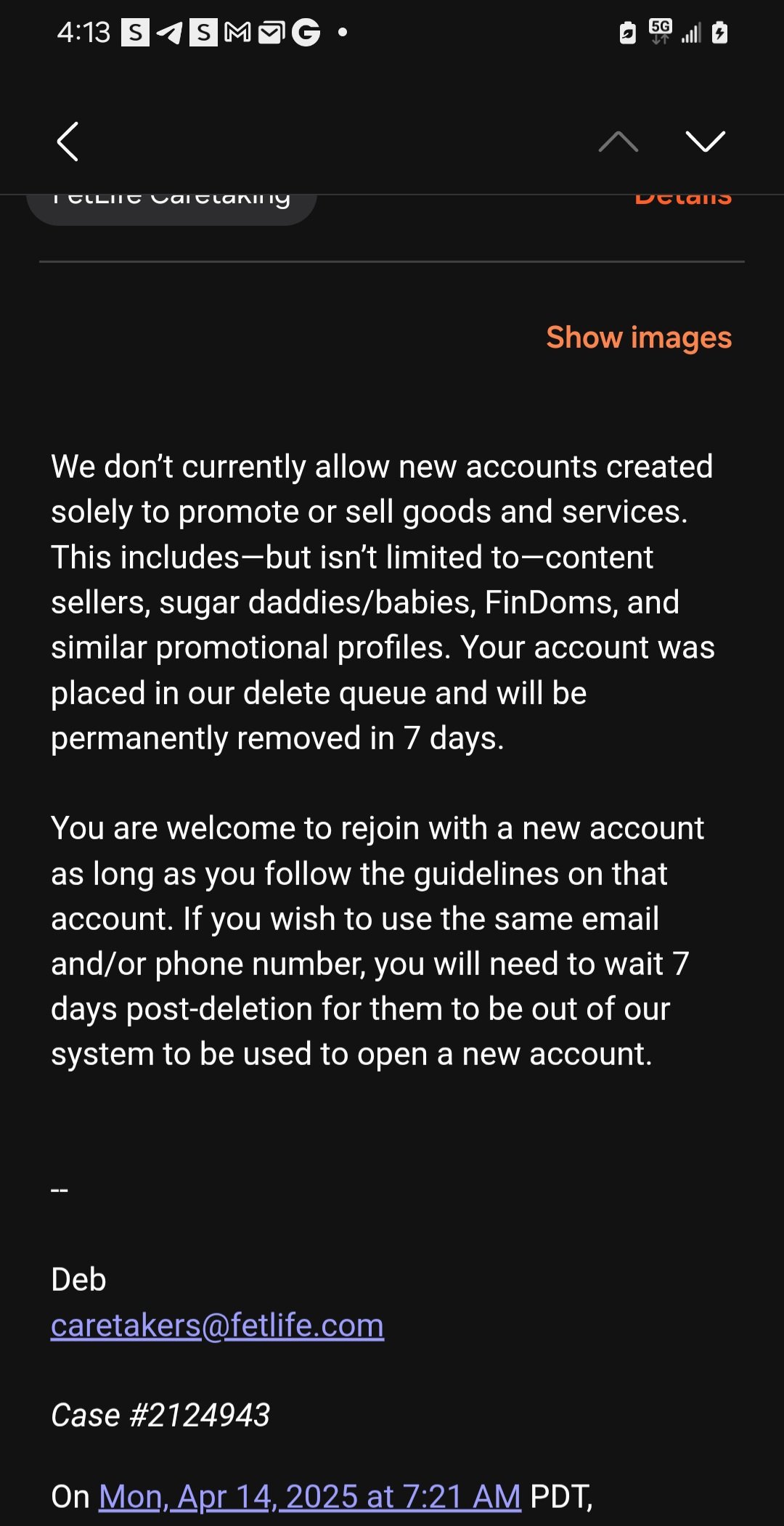
From personal experience…
I felt that an article addressing discrimination against findoms was necessary after my fetlife.com account was deactivated and marked for deletion simply because my profile contained the word “findom”.
I am not new to the financial domination scene. I did this in my late teens and early twenties, and I have to say it is refreshing to still see some of the women around online that I used to see back then. This is a large part of many people’s lives and is as much a part of the BDSM community as any other Kink or fetish. So why is it treated differently?
Understanding Discrimination Against Findommes in the BDSM Community
The BDSM community is a diverse and multifaceted space that embraces a wide range of fetishes, roles, and expressions of sexuality and power dynamics. Among these, financial domination—or “findom”—has emerged as a recognized and consensual subset, where a submissive (paypig or fin dom client) derives pleasure from financially serving or giving to a dominant (findom/Findomme). Despite its legitimacy within the broader BDSM landscape, findoms often face discrimination and stigma from some community members and society at large.
What is Findom?
Financial domination involves a consensual power exchange where the submissive derives gratification from giving money, gifts, or financial control to the dominant. The findom may derive pleasure from the control, the act of giving, or the humiliation associated with financial submission. It is rooted in established BDSM principles—consent, negotiation, and trust—and is practiced openly by many adults worldwide.
Sources of Discrimination
Discrimination against findoms manifests in various ways:
- Misconceptions and Stigma:
Many perceive findom as purely transactional or superficial, dismissing it as not “real” BDSM. This misconception reduces findoms to mere gold diggers or scammers, undermining their legitimacy and agency. - Judgment from the BDSM Community:
Some community members view findom as incompatible with “traditional” BDSM roles or as an exploitative practice. This often stems from misunderstandings about the consensual nature of findom and conflates it with non-consensual financial abuse. - Societal Moral Judgments:
Society at large sometimes stigmatizes financial domination as greed or materialism, leading to moral condemnation. Findoms may be unfairly labeled as shallow or manipulative. - Legal and Ethical Concerns:
There are ongoing debates around the boundaries of consent, legality of certain financial arrangements, and the potential for exploitation, which can fuel suspicion and criticism. - Safety: as much as safety is a concern for submissives, it is a concern for dominants. Findoms are often the targets of people who want to “get them back” (after never having served the findom), or try to not only rob them of money, but of the experience and enjoyment of being a findom.
Impacts of Discrimination
This discrimination can have several negative effects on findoms:
- Isolation:
Feelings of shame or fear of judgment may discourage findoms from openly participating in the community or seeking support. - Stigmatization:
Negative stereotypes can impact personal relationships, employment, and mental health. - Barrier to Acceptance:
Discrimination hampers the community’s growth by creating divisions and discouraging open dialogue about diverse practices.
Challenging Discrimination
Addressing discrimination against findoms involves education, awareness, and fostering acceptance:
- Promoting Consent and Safety:
Emphasizing that findom is a consensual practice rooted in trust helps dispel misconceptions. - Community Education:
Sharing knowledge about the diversity within BDSM, including findom, can normalize these practices. - Supporting Findoms:
Creating inclusive spaces where findoms can share experiences without fear of judgment encourages empowerment and visibility. - Legal and Ethical Clarity:
Advocating for clear guidelines ensures that practitioners understand boundaries and rights, reducing exploitation fears.
Conclusion
Findommes are an integral part of the broader BDSM community, embodying principles of consent, trust, and mutual enjoyment. Recognizing and challenging the discrimination they face is crucial for fostering an inclusive, respectful environment where all expressions of sexuality and BDSM practices are validated. Moving beyond misconceptions and stigma benefits not only findoms but the community as a whole, promoting understanding and acceptance of diverse identities and practices.
Subscribe to My Newsletter!
Get new content updates every week...or when I feel like sending one!





















Great read!